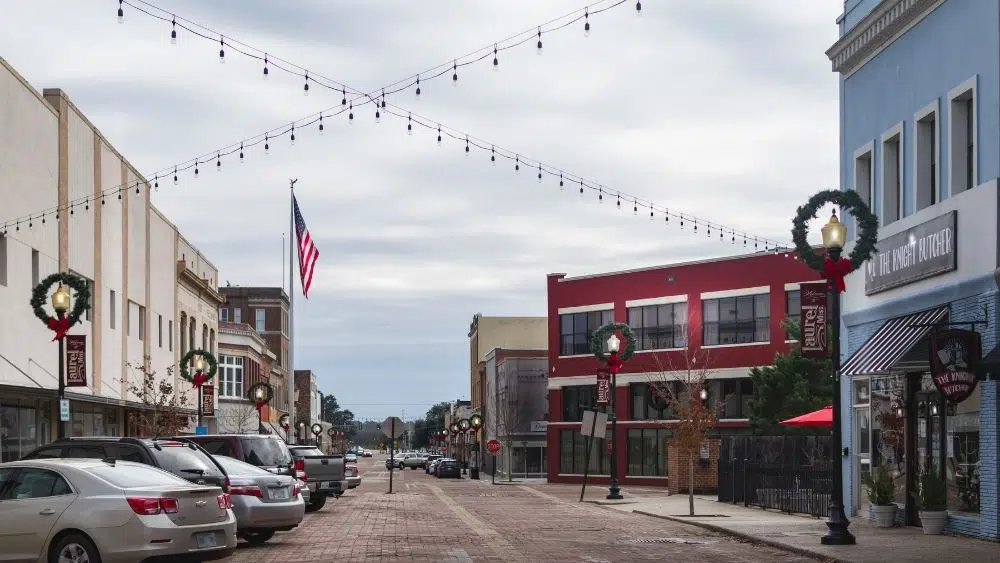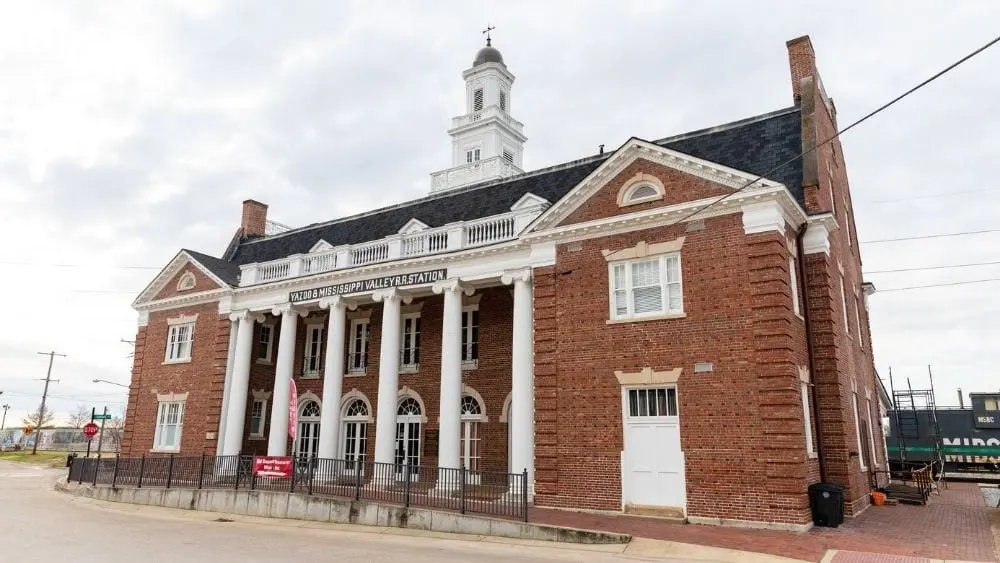
With a low cost of living, wide-open spaces and that sweet Southern charm, it’s easy to love life in Mississippi. If you a homebuyer about to close on a home in the Magnolia State, you’re likely more preoccupied with saving for a down payment and new furniture, than focusing on closing costs. But closing costs are another major expense you’ll come across. They encompass all the fees you must pay on closing day, including those for the appraisal and home inspection, securing a home loan, and title search. Closing costs can amount to about 2 percent to 5 percent of a home’s purchase price, paid for alongside the down payment.
Because closing costs can vary by state, here’s a look at what you can expect to pay in Mississippi, what’s typically included, and how you can potentially lower these costs.
How Much Are Closing Costs in Mississippi?
Closing costs in Mississippi are, on average, $2,016 for a home priced at $200,423, according to a 2021 report by ClosingCorp, which provides research on the U.S. real estate industry. That price tag makes up 1.01 percent of the home’s price tag.
Mississippi has some of the nation’s cheaper closing costs, ranking 16th cheapest among the 50 states. For comparison’s sake, the national average for closing costs is $6,087.
But homebuyers in Mississippi should expect to spend far more than these estimates. That’s because ClosingCorp’s data excludes common closing costs expenses, such as loan origination fees and private mortgage insurance (PMI). Loan origination fees can cost up to 1 percent of the home’s purchase price, while PMI can be as high as 2.25 percent of the home loan. Both expenses can add thousands of dollars to closing costs.
Mississippi does have some of the nation’s most affordable housing, with the median home price in the $150,000 to $165,000 range. Keep in mind, though, that closing costs will fluctuate greatly depending on a handful of factors, such as the price and location of the home, your down payment, your credit score, and the type of mortgage.

What’s Typically Included in Mississippi’s Closing Costs?
Each state has its own set of rules when it comes to real estate closings, from hiring an attorney to paying for real estate transfer taxes.
With so many moving parts, it’s easier to group your closing costs into three fee categories: property, mortgage, and annual. Here’s what to expect in Mississippi.
Mortgage-Related Fees
Unless you’re buying your new home with cash, you’ll need to get approved for a mortgage. These are the closing cost fees you’ll incur from your lender, along with the protocol for hiring an attorney.
Loan Origination Fees
Your mortgage broker will charge you loan origination fees for all the administrative work involved in setting up your home loan, including producing preapproval letters for your house hunting, processing your funding at closing, and everything in between.
Estimate this fee to be about 0.5 percent to 1 percent of your loan.
Credit Report Fees
Just like when you apply for a credit card, personal loan, or auto loan, your lender will need to pull your credit history with the various bureaus to see how you’ve managed previous debts. Expect the lender to pass along this expense to you. If more than one borrower is on the loan application, double this cost.
Private Mortgage Insurance
If you aren’t providing a 20 percent down payment, your lender will expect you to buy private mortgage insurance. This allows borrowers to qualify for a conventional loan even if they put down only 5 percent to 19.99 percent of their mortgage. While you’re paying for the insurance, the coverage is for your lender in case of default.
PMI typically ranges from 0.25 percent to 2.25 percent of your loan. Once you hit the 20 percent mark in home equity, you don’t have to pay for PMI.
Attorney Fees
Mississippi is one of several states that requires homebuyers to hire a real estate attorney to conduct closings. The attorney reviews the property’s title examination, certifying to the lender and title insurance company that the property’s title is free and clear. An attorney also helps with other legal aspects, from drafting your purchase agreement and contract of sale to being present on closing day for the deed transfer.
Legal fees will vary, depending on how complicated your home’s price and its location.
Property-Related Fees
Before you make the single biggest purchase of your life, you’ll need to hit some pivotal checkpoints to make sure your new home is a sound investment.
Title Search and Title Insurance
Homebuyers must pay for a title examination to ensure they’re buying property that’s free of ownership disputes, unpaid taxes, judgments, or outstanding lawsuits.
A title search involves poring over historical records, such as deeds, court records, and property and name indexes. Once the title search is complete, you’ll need to buy an owner’s title insurance policy for yourself and a lender’s title insurance policy for your lender. This insurance is a one-time expense that stays in effect until you sell your property and protects both parties in case of “defects in title.” It’ll cover all court costs and related fees should something go awry.
In Mississippi, buyers and sellers negotiate on who pays for these insurance policies.
Real Estate Transfer Tax
Here’s another silver lining for homebuyers in Mississippi: The state has no real estate transfer taxes. That’s one less closing cost expense for you to worry about!
Mississippi is one of about a dozen states that don’t have real estate transfer taxes. They’re typically charged by local and state governments when the seller transfers the property to the buyer.
Your municipal recording office may charge a fee for recording the transfer of the deed in public records, though.
Property Appraisal
Before your lender transfers the funds for your home purchase, your potential new property must be appraised. This step ensures your big buy is priced at the right market value. If you default on your home loan, your lender needs to know it can sell the property to recoup its losses.
The lender will send a third-party appraiser to the property. They will scan the home, its size, features and condition and determine how it stacks up next to homes priced similarly in the community. Consult with your lender on how much an appraisal will cost because they’ll be using their go-to appraiser for this step.
Property Inspection
For peace of mind before you invest your life’s savings, hire a home inspector to examine the interior and exterior of the property. A home inspector will zero in on big and small aspects of the home’s condition, from the roof to the foundation to the drainage systems and heating and ventilation.
This step is worth every penny. Your home inspector will flag any issues you may want to negotiate on with the seller before finalizing the deal. You can shop around for a home inspector so price points will vary.
Annual Fees
From monthly mortgage payments to utility bills and seasonal maintenance, homeownership is an ongoing investment. Your closing costs will include a handful of fees that you’ll need to start paying annually.:
Property Taxes
Paying for property taxes is a rite of passage into homeownership. As part of your closing costs, you’ll need to pay for the first six months to a year of property taxes.
In Mississippi, homeowners pay about 0.65 percent of their home’s assessed market value in property taxes, according to the Tax Foundation. Because property taxes are collected on a county level, with each region setting its own tax rate, the precise percentage will vary depending on where you’re moving to. Overall, Mississippi has one of the lowest median property taxes in the country.
Count on paying for property taxes by February 1 each year for the previous year, according to the Mississippi Department of Revenue. Property taxes are a prepaid expense, meaning they need to be paid at closing and can’t be rolled into your home financing.
Homeowner’s Insurance
Before your lender issues your home loan, you’ll need to buy a homeowner’s insurance policy that’s in effect at closing and will cover the first year. Homeowner’s insurance is mandatory. It’ll cover any physical damage to your home caused by fire, wind, vandalism, or theft.
Check on whether you’ll need additional flood insurance policies to safeguard your home. In some instances, you may even need to pay for a flood certification, which will categorize your home’s flood risk and insurance requirements.
Homeowner’s Association
Nearly 5 percent of homeowners in Mississippi are part of a homeowner’s association (HOA), so there’s a small chance you may have to budget for this fee.
HOA fees typically cover the cost of community amenities, such as fitness centers, pools, and community parks. They also may cover expenses to keeping your neighborhood running, from trash removal to security.
The more elaborate your HOA is, the more you should expect to pay. Make sure to ask about HOA fees upfront so you will know how much to expect to pay.

How Can I Lower My Closing Costs in Mississippi?
If you’re wondering how you’ll come up with the cash to close on your home, here’s a rundown of key strategies that could help you save some money.
Closing Cost Assistance
Take advantage of Mississippi’s homeownership assistance programs as it could put a significant dent in your closing costs.
If you’re a first-time homebuyer, you may qualify for a Mississippi Home Corporation mortgage for up to $7,000 in a deferred 10-year second mortgage with zero percent interest to be applied to closing costs. Smart Solution, a program for repeat homebuyers, comes with down payment and closing cost assistance for up to 3.5 percent of the home’s purchase price.
From Jackson to Vicksburg, there are also local financial assistance programs to help you drive down the costs.
Get Your Finances in Shape
Before shopping for a home loan, focus on improving your credit score as much as you can.
Pay down your debts and don’t make any late or missed payments before making your case to lenders. With a great credit score, you may be able to secure a lower interest rate and competitive terms for your loan. Scoring a lower interest rate will save you thousands of dollars over the lifetime of your mortgage.
Apply as much as you can toward your down payment, too. The closer you get to the 20 percent threshold, the less you’ll have to pay in PMI.
Comparison Shop
While some closing cost fees are fixed, such as your appraisal, you can shop around for some services, such as your lender, home inspector, and title company.
Take time to compare vendors, ensuring they’re appropriately accredited with glowing reviews from previous customers. With a shortlist in hand, ask for quotes so you can make sure you’re getting the best deal.
Negotiate Lender Fees
If you have a longstanding, established relationship with your lender, you may have some wiggle room with your loan setup fees.
You could ask your lender to omit certain expenses from your bill, such as rate lock fees, loan processing fees, or broker rebates. If that doesn’t work, you could also ask to stagger these expenses, so they’re paid in stages instead of all at once at closing.
Seller Concessions
Negotiating the home sale is part of the homebuying process, especially if you’re in a buyer’s market and your seller or builder is eager to offload their property.
There are many ways you can try to reassign some of the closing costs: You can submit a full-price offer with a caveat that the seller must pick up all your closing costs. If you’re building a new home, you can ask the builder to pay a portion of the closing costs.
No-Closing-Cost Mortgages
With a “no-closing-cost” mortgage, your lender agrees to pay for part or all of your closing costs, but you must pay a higher interest rate.
Be careful with this option: It could cost you more money overall because of the bump in your interest rate.
Add Closing Costs to Your Home Financing
Aside from the prepaid expenses that must be paid at closing, you could opt to roll your closing costs into your home loan. This could add thousands of dollars to your mortgage. You won’t have to pay for closing costs on closing day, but your monthly mortgage payments will be a bit higher.
Other Mississippi Resources

Carmen Chai is an award-winning Canadian journalist who has lived and reported from major cities such as Vancouver, Toronto, London and Paris. For NewHomeSource, Carmen covers a variety of topics, including insurance, mortgages, and more.
 2021 Guide to Closing Costs in Missouri
2021 Guide to Closing Costs in Missouri